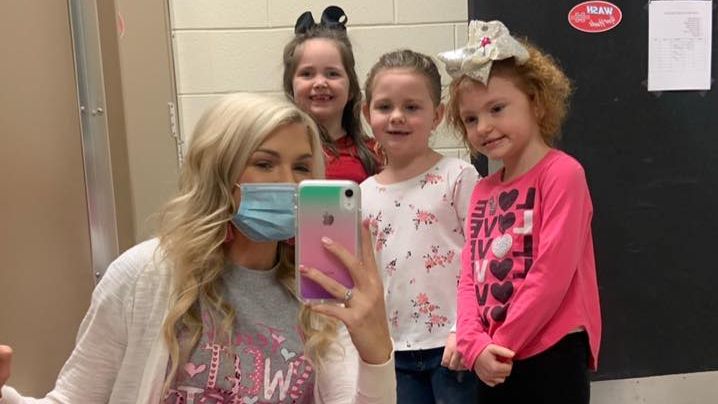LEXINGTON, Ky. — With attending virtually an option during the COVID-19 pandemic, parents of many kindergartners decided to keep their children in preschool, send children to private schools, or opt-out of in-person schooling entirely. Early childhood advocates warn that some of these children may struggle when it is time to go to first grade in the fall.
What You Need To Know
- Many families chose to delay kindergarten because of COVID-19
- Several states are offering "redo" years
- Teacher says kindergarten is crucial for development of social skills and structure
- Kindergarten enrollment decreased significantly for 2020-21 school year
Morgan Hensley teaches kindergarten at Warfield Elementary School in Martin County. She stressed the importance of attending kindergarten in person.
“One thing I have tried to express to my fellow teachers is that kindergarten, in my eyes, is a lot different nowadays than when I went to kindergarten,” she said. “Kindergarten was mostly implemented for play-based learning and social skills. But now, what we learned in first grade, the students today are learning in kindergarten. It's a lot of hands-on learning and has routines and procedures — students that attended kindergarten virtually are going to go into the first-grade classroom without any type of routines or procedures. They also won't have many social skills to interact with the teacher, a peer or get acclimated into the school setting. It’s a big jump going from home and into the classroom at 4 or 5 years old.”
A recent report from the University of Oregon found about 17% of 1,000 families surveyed nationally chose to delay kindergarten this past fall. State enrollment numbers have not yet been compiled, but many school districts have posted lower enrollment numbers in kindergarten compared to previous years.
According to an article by EdSource, many students have likely suffered learning loss during COVID, and it may have a far more significant impact on incoming first-graders because of where they are in their development. Missing early milestones in reading and math skills may set students up to fail as the workload increases.
All children may face some challenges getting up to speed in the fall, but early childhood experts suggest that low-income children who missed kindergarten might confront the steepest hurdle, according to EdSource.
Early childhood experts also advocate for parents to be given the option of placing the child in kindergarten instead of first grade, which is possible in Kentucky because of the Supplemental School Year Program created March 24. That's when Gov. Andy Beshear signed off on Senate Bill 128, giving students the option to repeat the 2020-2021 school year due to the COVID-19 pandemic. The law also provides high school senior athletes a fifth year of eligibility.
According to the EdSource article, one of the more pressing concerns is that many children may remain traumatized about issues beyond the classroom, such as the instability of housing, food, and health care, which have been made worse by the pandemic. Teachers will need extra help to address these issues, experts say, which extend beyond learning to mental health.
“I don't think I ever want to do anything else,” Hensley said. “I didn't even think I would like kindergarten as much as I do. But some things about it really break your heart, like knowing some of the students’ home lives and knowing they need to be in school. For some kids, school is their getaway. Even kindergartners, school is where they can feel love and warmth and have someone listen to them and play with them and give them some type of interaction. I sometimes wonder what kind of environment they're in when they leave school? Are they getting fed? Is someone even taking care of them? With all this virtual learning, it's just another thing on top of what else we have to deal with. It’s changing the structure of education and putting more workloads on the teachers and putting more on the students as well.”
A survey this past fall by National Public Radio of more than 60 districts in 20 states found enrollment a 16% decrease in kindergartners compared to the 2019-2020 school year. A separate analysis of 33 states by Chalkbeat and The Associated Press found kindergarten opt-outs have been the biggest driver of the overall K-12 enrollment decline, accounting for 30% of the total reductions.
Jefferson County Public Schools, Kentucky’s most populous district, had about 700 fewer kindergartners than the 7,000 it had anticipated during the COVID-19 school year. The Lexington Herald-Leader reported in December 2020 that Fayette County Public Schools had a decrease in enrollment in the fall semester of 2020, with the most significant change at the kindergarten level, where 402 fewer students enrolled in 2020 than in 2019.
Hensley said all the students in her kindergarten class that attended virtually are moving on to first grade.
“I actually did have a conversation with one parent about letting her child come to kindergarten in person this year,” she said. “Her mom said she was going to go ahead and move on to first grade, and that actually floored me because I wanted to tell her she needs to repeat kindergarten, but you can't make those decisions for other people.”



